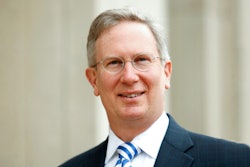Politically Conscious Globetrotting
Professors interested in hitting the road for research might want
to check out the Global Exchange Reality Tours, an alternative political education travel experience, operating under the model of socially responsible tourism. This year, 54 professors have already traveled to far-flung places such as Iran, Cuba and Afghanistan and returned
to the ivory towers with reports of life on the ground. Trips cost between $1,000 and $4,000 for several weeks, all meals, airfare
and hotels included.
A few examples are listed to the below.
Visit www.GlobalExchange.org for more information.
— By Christina Asquith
Dr. Susan Elizabeth Marcus
Adjunct Professor of Business, Portland State University
WHERE: Venezuela
WHY?: I was teaching a course called “Business Environment,” and Venezuela’s co-operative model intrigued me. It appears to offer the best opportunity for an egalitarian approach to business development through shared ownership.
WHAT SURPRISED YOU?: We receive a lot of propaganda in this country about Venezuela being run by a dictator. What I saw was a very interactive democracy. Everyone I met was fully engaged in the process — from our bus driver to the leader of the Afro-Venezuelan Network, to an elder giving us his oral history. They were all excited about the future and their place in it.
LESSONS BROUGHT HOME: It is interesting that the Venezuelan Constitution discusses the rights of Indigenous people yet makes no mention of Afro-Venezuelans. When some of our group members questioned government representatives on this, while first denying it they quickly realized it was truly an inequity and agreed they had work to do in that area. Time will tell whether they follow through on their commitment, and whether Venezuela, besides showing us a better business model, can also lead the way on social justice reforms.
Dr. Manzar Foroohar
Professor of History, California Polytechnic State University
WHERE: Palestine/Israel
WHY?: I have been reading about this conflict for many years, but I had never imagined how bad the situation was until I went to the towns and villages in the West Bank and Gaza Strip, sometimes during the curfew, and witnessed the tragedy of daily life for Palestinians.
LESSONS BROUGHT HOME?
I took a lot of slides for my classes. They give human faces to statistics and data, and make me feel connected to the people, and much more passionate about what I teach in the classroom.
Dr. Judith Puchner
Professor Emeritus of English Literature, San Francisco State University
WHERE: Lebanon and Syria, following the route of the Crusades
WHAT DID YOU LEARN?: We traveled through Tyre and Baalbek, and some of the other hardest hit areas in the recent Israeli invasion. I saw why the Lebanese look to Hezbollah for defense and supplies, since there is no one else. I can visualize the horrors the cluster bombs left in the dry rubble, and the pollution of the beaches and ports in important vacation spots, have wrought on an already fragile population.
LESSONS BROUGHT HOME: The trip gave me an understanding of the historical Middle-Eastern point of view toward Western powers. I regret that American policy is driving the Middle East further into conservative Muslim hands, and the repression of women.
© Copyright 2005 by DiverseEducation.com


















